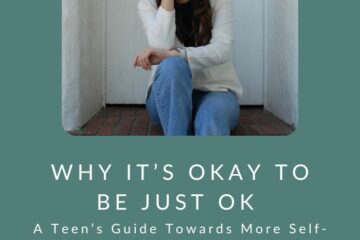What Your Brain Believes

I used to teach online English Composition classes at a community college. At the beginning of the semester, I would ask my students to introduce themselves—to say a little about their hobbies and families and how they felt about writing. It was a beginning-level class, so there wasn’t usually a great amount of confidence:
I’m not a good writer.
I’ve always been bad at grammar.
I hate writing.
Are these statements true? It depends on your perception. I happen to believe in the power of reframing. Over the years, I would often encourage my students to use reframing to open themselves up to their own possibility—especially in areas (like writing) that they struggled with.
After all, a belief is just a thought we keep thinking. So why not choose our thoughts a bit more carefully?
“I’m not a good writer” becomes “My writing skills improve every time I practice.”
“I’ve always been bad at grammar” becomes “I’m working hard to better grasp the rules of grammar.”
“I hate writing” becomes “I’m curious about the challenge of a writing class.”
Your brain believes what you tell it. So if you tell it, for example: I can’t afford to travel, then it will stop looking for travel possibilities. But if you say instead: HOW can I make this trip to New Zealand happen? Your mind then stays open and works with you to find a solution.
I have the following sentences written on a post-it and taped to my computer:
I have enough.
I do enough.
I am enough.
I see these words and say them in my head every day when I sit down to work. And it helps me.
Maybe you think affirmations like these are weird. I used to think they were kind of embarrassing. But then I thought about how I’ve been affirming things to myself my whole life:
I’m such an idiot.
I look weird in this shirt.
I have a bad memory.
I’m fat.
The list goes on. So why not make a new list?
Try this:
Write out five negative beliefs you are holding on to. Allow yourself to look at them. To feel the discomfort or sadness or anger that surrounds them. Then cross each one out and beneath it, reframe that belief.
You don’t have to delude yourself. I hate myself probably can’t be flipped to I love myself in an instant. But a step toward that might be: I’m committed to appreciating the good in myself today.
There is tremendous power in words—especially the ones you speak to yourself, about yourself.



0 Comments